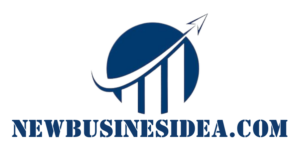Montreal is one of Canada’s most dynamic business centers, known for its bilingual workforce, multicultural entrepreneurship, and thriving sectors such as technology, finance, healthcare, creative industries, and manufacturing. As organizations across the city face rapid change—from digital transformation to hybrid work environments—strong and adaptable leadership has become essential. Executive coaching in Montreal has grown significantly in response to this need, offering leaders personalized guidance to enhance performance, develop emotional intelligence, and navigate complex business challenges.
What Makes Executive Coaching Valuable in Montreal
Montreal’s business environment presents unique opportunities and challenges for leaders. With its blend of French and English cultures, diverse workforce, and shifting economic landscape, executives often require advanced communication skills, cultural awareness, and strategic flexibility. Executive coaching provides a structured, confidential space for leaders to reflect on their strengths, identify areas for growth, and build capabilities that support long-term professional success.
Several factors explain the rising popularity of executive coaching in Montreal:
1. Multilingual and Multicultural Leadership Demands
Montreal’s bilingual environment requires leaders to communicate effectively in both French and English. Executive coaching helps strengthen communication skills, guide cross-cultural interactions, and support leaders in fostering inclusive workplaces.
2. Growth of High-Tech and Innovation Sectors
The city’s fast-growing technology and startup communities demand agile leaders capable of rapid decision-making and continuous innovation. Coaches help executives develop resilience, strategic thinking, and leadership styles suited to fast-paced environments.
3. Hybrid and Remote Workforce Management
With many organizations embracing hybrid work, leaders need new approaches to team engagement, digital communication, and performance management. Coaching provides techniques for leading distributed teams with clarity and empathy.
4. Increasing Emphasis on Workplace Well-Being
Employees today expect psychologically healthy workplaces. Executive coaching supports leaders in developing emotional intelligence and fostering cultures rooted in trust, collaboration, and well-being.
What Executive Coaching Involves
Executive coaching is a personalized development process conducted through one-on-one sessions with a trained coach. The relationship is built on confidentiality, trust, and open dialogue.
A typical coaching journey includes:
1. Assessment and Goal Setting
Executives begin by exploring their strengths, challenges, leadership style, and career aspirations. Many coaching engagements incorporate feedback tools such as 360-degree assessments or personality evaluations to establish a clear baseline.
2. Regular Coaching Sessions
Leaders meet with their coach—often biweekly or monthly—to discuss real-world challenges, reflect on experiences, and develop strategies for improvement. Sessions may focus on communication, decision-making, conflict resolution, or other leadership competencies.
3. Action Plans and Accountability
Coaching transforms insights into actionable steps. Executives set measurable goals and receive guidance on applying new behaviors in the workplace. By integrating strategic planning tools, coaches help leaders track performance and stay aligned with organizational objectives. They also hold leaders accountable, ensuring consistent progress.
4. Ongoing Reflection and Adjustment
As the executive grows, the coaching approach evolves. The coach provides continuous feedback, helping the leader maintain momentum and adapt to new challenges or responsibilities.
Key Areas of Focus in Montreal’s Executive Coaching Programs
Executive coaching engagements in Montreal often emphasize these core leadership skills:
- Bilingual communication and presentation skills
- Cross-cultural leadership and inclusivity
- Strategic planning and long-term visioning
- Conflict management and difficult conversations
- Executive presence and confidence building
- Decision-making under pressure
- Team leadership and performance management
- Change leadership during organizational transformation
These competencies are essential for navigating Montreal’s diverse and collaborative business environment.
Benefits for Montreal Organizations
When leaders grow, entire organizations benefit. Executive coaching provides value at every level:
Improved Leadership Capability
Coached executives become more self-aware, strategic, and effective—leading to stronger teams and smoother operations.
Higher Employee Engagement
Leadership has a direct impact on morale. When executives communicate well and show emotional intelligence, employees feel more valued and motivated.
Better Retention and Talent Development
In competitive sectors, coaching helps companies retain top performers and build internal leadership pipelines.
Enhanced Organizational Adaptability
Coaching equips leaders with tools to navigate change, driving innovation and stability even in uncertain conditions.
Benefits for Leaders Themselves
Executives who engage in coaching often experience:
- Greater confidence in their leadership style
- Improved stress management and resilience
- Stronger relationships with teams and stakeholders
- Clearer career direction and purpose
- A balanced approach to decision-making
These benefits ripple outward, improving both personal well-being and workplace dynamics.
Conclusion
Executive coaching in Montreal is more than a professional development trend—it is a strategic investment in leadership excellence. As the city continues to grow as a multicultural and multilingual business hub, organizations rely on capable leaders who can navigate complexity, inspire diverse teams, and drive sustainable success. Executive coaching provides the structure, insight, and guidance leaders need to meet the demands of modern business with clarity, confidence, and authenticity.

